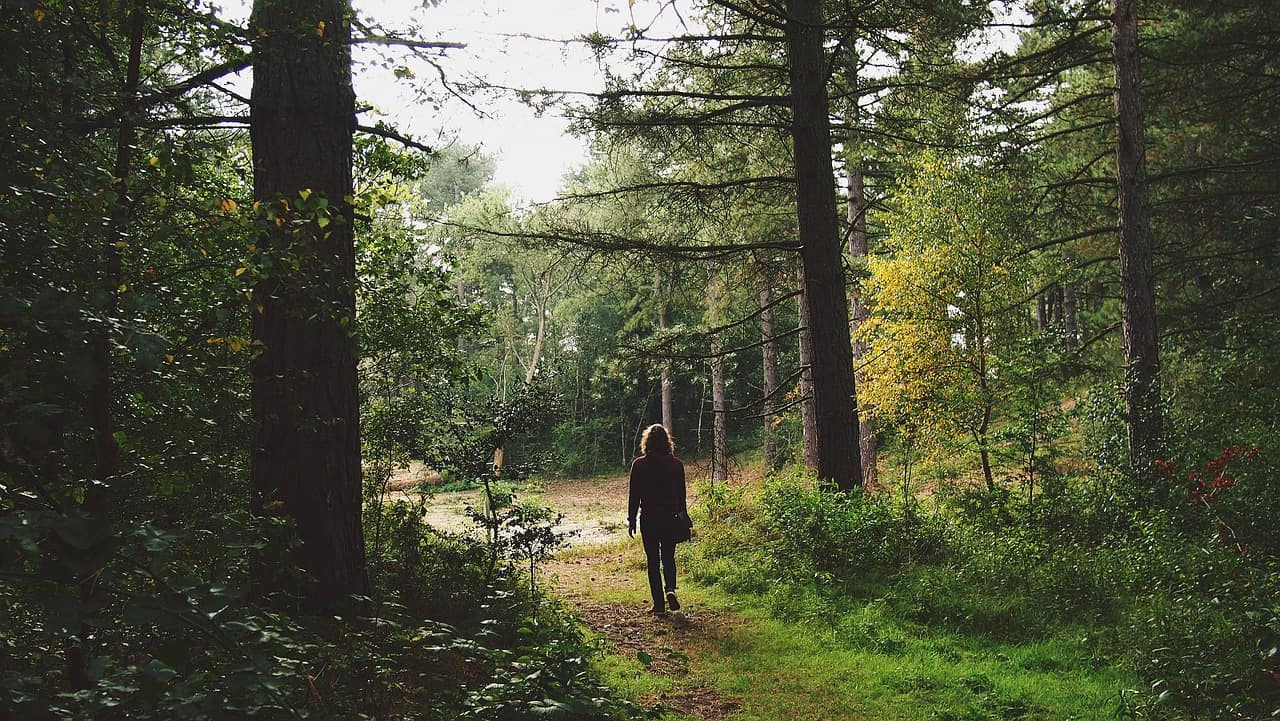Hiking can be a great way to get some exercise and enjoy the solitude of nature. However, if you’re planning on hiking, especially in isolated or remote areas, there are some basic precautions you should take to help prevent you from becoming lost while hiking.
While you might think you would never get lost while hiking, it might surprise you to learn just how many hikers get lost a year?
While the number varies from year to year, on average around 2,000 hikers get lost each year while hiking. Leading to numerous Search and Rescue (SAR) operations being launched to locate and extract lost hikers.
Because of this, we created this how-to guide on the best ways to ensure you don’t get lost while hiking as well as what to do if you do wind up getting lost while hiking.
Why Do Hikers Get Lost?
Perhaps one of the best ways to make sure you don’t get lost while hiking is to learn how other hikers got lost so you can avoid their pitfalls and mistakes while hiking.
Below are some of the most common ways hikers get lost while hiking starting with the most common and ending with the least common.
Did Not Stay on the Trail
The number one way hikers get lost while hiking is by not staying on the designated trail.
So one of the best ways to ensure that you don’t get lost while hiking is to not venture off the trail and to make sure you stay on the designated hiking trail at all times.
While you might think there is no harm in heading off the trail for a short while to check something out, it’s very easy to get turned around and lost while hiking especially in densely forested areas or desolate areas with few landmarks.
Bad Weather or Storms
The second most common way hikers end up getting lost while hiking is due to bad weather or a storm rolling in while there hiking, causing them to become disoriented or lose their bearings.
While this might not always be 100% avoidable as it can be hard to predict mother nature, it’s always a good idea to check the local weather before you head out on a hike to ensure there are no reports of bad weather heading your way.
Falling Off the Trail
Often times while hiking there can be very narrow sections of trail with steep drop-offs or even cliff faces which can pose a serious risk to those hikers that get too close or are not paying attention, causing them to go over the edge or fall of the trail only to become disoriented and lost at the bottom.
So when hiking lookout for any drop-offs or cliff faces and give them the respect they deserve by giving them a wide birth as you pass.
Separated from Their Hiking Group
Another common way hikers get lost while hiking is that they get separated from their hiking group, which unfortunately was acting as their guide and navigation for the hike.
There are two things you can do to help avoid getting in this situation yourself, with the first being to make sure you always stay within visible distance of the party you are hiking with by not getting too far ahead or behind the hiking group.
The second way to avoid getting lost in this way is to never rely solely on someone else for your navigation while hiking, as every hiker in the hiking group should know the trail they are hiking on as well as how to navigate on their own.
Injury
The next way hikers can become lost while hiking is that they become injured or hurt while hiking and can’t hike back out from the isolated area they were hiking in.
While you might not be able to prevent injuries while hiking, you can take steps to ensure if you do become hurt or injured while hiking you don’t become stranded or lost.
The first of these ways is to never hike alone while hiking, that way in case you were to become hurt or incapacitated someone could hike out of the area to go get help. The second way is to always let someone know where you will be hiking and when you plan to return, that way in case you do get injured and don’t return when you said you were going to, someone knows to come looking for you and where.

Darkness
Hikers can often get lost in darkness and at night while hiking, even if they are generally familiar with the area, as the lack of light can become very disorienting while trying to navigate, potentially causing them to miss specific landmarks or trail turnoffs.
So to make sure you avoid getting lost due to darkness while hiking, don’t get caught on the trails after dark, and make sure to leave plenty of time to get back to the trailhead before the cloak of darkness falls over the trail and causes you to become disoriented or for you to lose your way.
Failure or Loss of Equipment (GPS)
While this is the rarest way hikers get lost while hiking, failure, or loss of equipment such as a GPS unit while hiking does occasionally happen and can cause hikers to become lost if they don’t have a backup form of navigation or rely too heavily on external equipment for their navigation while hiking.
The best way to avoid becoming lost while hiking due to failure or loss of navigation equipment is to always carry a backup form of navigation in case you lose your primary source. Such as a good old-fashioned topographical map of the area and a compass. However, don’t wait to try and figure out these primitive navigation tools until after you have become lost as it can take a while to learn to navigate with a map and a compass.
What to Do if You Get Lost on a Hike?
According to the US Forest Service the best thing you can do if you get lost while hiking is to actually be prepared for such an event before you ever become lost through advanced planning.
Even if you’re only going on a hike that lasts a few hours, it’s always best to be prepared in case something goes wrong while hiking such as getting injured or lost.
How to Be Prepared in Case You Get Lost While Hiking
- Always make sure to bring more than enough water and food for your hike so that you can make sure to avoid becoming dehydrated while hiking and to keep your energy up.
- Have some form of navigation tool with you even if you are familiar with the area or trail such as a compass or a GPS unit. ((Typically your cell phone will not be a good source of navigation while hiking due to the lack of cell phone signal.))
- While hiking always make sure you have either a topographical map or a trail map of the area you are hiking.
- Have a small emergency kit with you while hiking including items such as matches, a first aid kit, and a blanket to help you survive overnight if needed.
- Dress appropriately for your hike by wearing a good sturdy pair of hiking boots or trekking shoes and wearing several layers of clothing that you can shed or add as the weather and temperature dictate.
- Know the trail you are going to hike before you hike it, by doing some basic research about the trail itself and making sure there are no special warnings or alerts such as bears or flooding that you should be aware of.
4 Critical Things You Must Do if You Get Lost While Hiking
While it’s great to be prepared in case you get lost while hiking, it’s also equally important or even more important to know what to do in the event that you actually do become lost while hiking.
Below are the 4 critical things you must do if you get lost while hiking, to give yourself the best chance of figuring out where you are and getting back to safety.
Don’t Panic and Stop
As with most dangerous or emergency situations, the best thing you can do if you get lost while hiking is to try and stay calm and don’t panic as this can often lead you to make hasty and irrational decisions.
So if you find you have become lost while hiking remembers to stop, stay calm, and try to get your bearings before you do anything else.
Think and Retrace Your Steps in Your Mind
In your mind try to think back to how you got to this point or area if you become lost. Try to picture specific landmarks or unique features of the land such as streams or bodies of water or large rock outcroppings to help jog your memory.
By doing this you might be able to retrace your steps and found your way back to a familiar landmark or trail to help figure out where you are.
Don’t Walk Aimlessly and Use Your Navigation Tools
One of the worst things you can do is just start walking aimlessly with no real idea of where you are or what you are trying to get to. This is often a way to become even more lost and disoriented while hiking because you could be heading even farther away from where you came.
Instead, get your compass, map, or navigation tool out to try and figure out where you are as well as the general direction you have been heading so that you may reverse course to get back to more familiar surroundings.
Make a Plan
Based on your thinking and what you have figured out in regards to your bearing and the general area you believe you are in, use this information to formulate a plan of action on the best possible route to find your way back or to reach an area where you know there will be people and help.
If you cannot come up with a plan or route that makes sense, it’s best to stay put until you do, or until a rescue party is able to find or locate you.
Also as a last resort, you can follow a drainage ditch or stream downhill as this will often lead to a road, trailhead, or civilization. However, this should only be used as a last resort as this can often be a very difficult and challenging path to try and follow.

